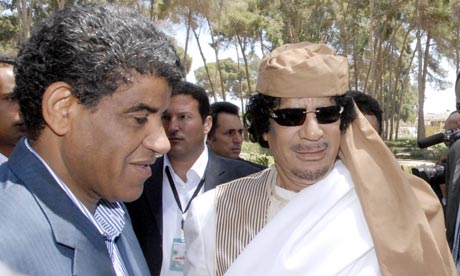By Madeline Schiesser
Impunity Watch Reporter, Europe
STOCKHOLM, Sweden – Known for extremely gay-friendly attitudes, Sweden has hidden a dark secret: a 1972 law required transgender people who desired to legally update their gender to first be divorced and sterilized through sex reassignment surgery.

However, in December, the Stockholm Administrative Court of Appeal found the 1972 law to be discriminatory against transgender people, to have failed to respect civil liberties as guaranteed by the constitution, and to be in violation of the European Convention on Human Rights.
The case was brought before the court by the Swedish Board of Health on behalf of an unidentified plaintiff who wanted to change his sex, but refused sterilization.
Under the 1972 law, a person who wants to change sex legally must be infertile. This resulted in the practice of requiring transgender applicants to undergo surgery and sterilization. Because of the law, some transgender people in Sweden chose to wait to legally change their sex on official documents, despite the difficulty and public embarrassment this may cause, in order to have their own biological children.
“I know at least one man in Sweden who lives fully as a man but has kept his womb because he wanted children and it’s very problematic for him to still legally be defined as a woman,” said Ulrika Westerlund, president of the Swedish Federation for Lesbian, Gay, Bisexual and Transgender Rights (RFSL). “It is a violation of human rights to force a person to have surgery that they do not need or want in order to have your gender legally recognized,” she said.
Swedish actress Aleksa Lundberg, who made the transition when she was 18 and has stared in a one one-woman show called “Infestus” chronicling her experiences, said “I believed I had to give up every vestige of being male to complete the process. I cried and shouted for joy when that final piece of paper dropped in the mailbox telling me that I was now legally a woman.” It was only several years later that Lundberg began to realize she had also lost her right to reproduce. “We are not even allowed to freeze sperm. I am today fully incapable of having my own children,” says Lundberg.
Nova Colliander, a transgender woman who underwent the surgery described her experience as “an assault, a rape. The state gave an ultimatum I had to accept. The alternative was to die, so strongly I felt this. I do not know how many wills I wrote as a child.” [Translated with Google]
The court’s ruling preempts legislative action which would have ended the sterilization requirement in July 2013. Early last year, the Swedish parliament began to move towards repealing the law, and adopted the July 2013 ban in autumn. The move followed international outrage, including the hand-delivered a petition with nearly 80,000 signatures from LGBT organization All Out to the Swedish prime minister in January, after the Christian Democrat Party initially blocked initial moves to strike down the law.
Praising the ruling, Ulrika Westerlund and RFSL also note that many sterilized under the 1972 law have hopes of compensation from the government. It is possible lawmakers will adopt a law granting reparations, of which Westerlund says 200,000 kronor ($31,000) per person would be a “fair sum.” If not, RFSL will file a lawsuit. Between 80 and 90 sterilized sex change patients have already approached RFSL to discuss seeking damages.
It is estimated that about 50 sex changes take place each year in Sweden (population 9 million). The surgeries are covered under state-funded health care. In the forty years between 1972 and 2011, 865 people made an official request for a sex change operation, with roughly 500 undergoing the surgery.
Sweden has a history of eugenic sterilization. Between 1934 and 1976, an estimated 63,000 people, mostly women, were sterilized due to mental disability, epilepsy, or alleged social problems. In 2000, the government granted reparations of 175,000 kronor to identified victims.
The policy of requiring sex reassignment surgery before recognizing a legally changed gender is not unique to Sweden. Sixteen other countries in the European Union, including France, the Netherlands, and Australia have a similar requirement. So too do many U.S. states. Only recently have Italy and Germany overturned their forced sterilization laws.
Nova Colliander has tried to make sense of why it has taken so long for the sterilization requirement to be overturned. “Being transgender is considered embarrassing and unimportant in society. They would rather hide us, it’s hard to even talk about us. Therefore, it has taken time”
For further information, please see:
The Local – Sweden to Stop Sex Change Sterilization – 11 January 2013
Think Progress – Sweden Ends Forced Sterilization of Transgender People – 11 January 2013
SvD – Könsbytare Stämmer Staten – 10 January 2013
Mother Jones – Sweden Moves to End Forced Sterilization of Transgender People – 24 February 2012
Mother Jones – Forced Sterilization for Transgender People in Sweden – 25 January 2012
Huffinton Post – Aleksa Lundberg, Swedish Transgender Actress, Mourns Forced Sterilization – 3 November 2011
The Local – Sweden to Reflect on Eugenics Past – 21 December 2005



